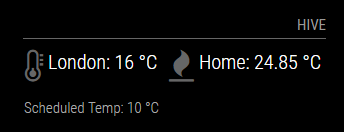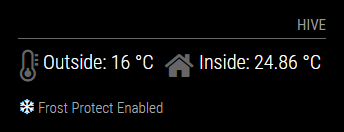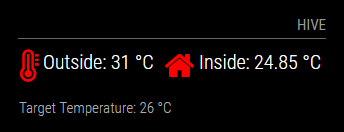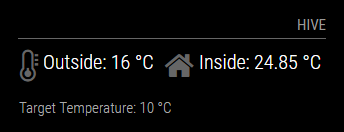Read the statement by Michael Teeuw here.
MMM-Hive
-
@mongo116 Hi - Looks like Hive have changed the login details and so the inside temp has stopped working. This can be fixed by changing the following line (#62) in node_helper.js from
url: lUrl + '/global/login',to
url: lUrl + '/cognito/login', -
Ah thank you, came here to research this issue and have just implemented your fix and all working again.
-
@rick Cheers for the details. I’ve updated and added some config options in case this changes again, so you only then need to update the config.
-
Looks like Hive have been changing login details yet again!. This time you need to change line(#67) in node_helper.js from
headers: { 'Content-Type': 'application/json'},to
headers: { 'Content-Type': 'application/json', 'User-Agent': 'HiveRNApp/10.16.2' }, -
@rick Thanks for that. Github has been updated :thumbs_up_light_skin_tone:
-
Not sure whether many are using this module but figured I’d provide an update on the changes I made today. I’ve now updated the module so that it works again! I have updated to include the new login process and from testing it all appears to work - would welcome any feedback though :)
-
My Hive module is giving a login error all of a sudden. Has Hive changed its user authentication method?
Can the module author update this? -
-
I think its to do with Hive’s 2-factor authentication
Does anyone have a workaround for it?




